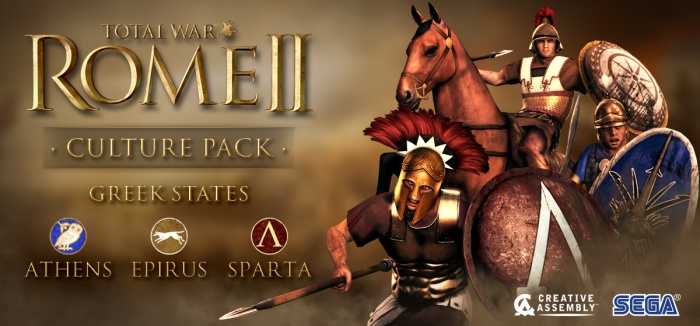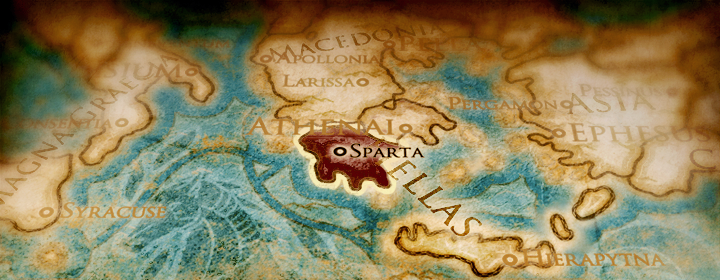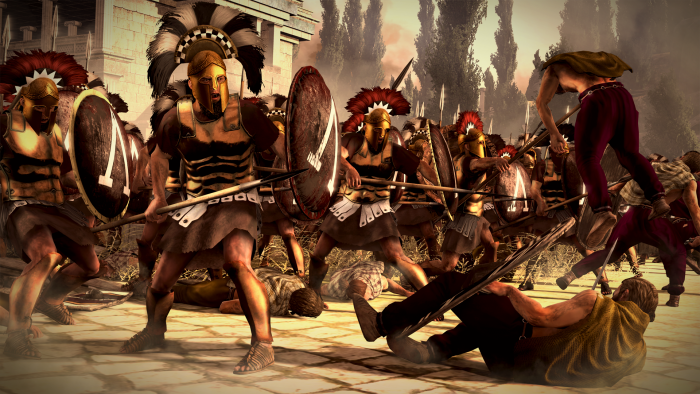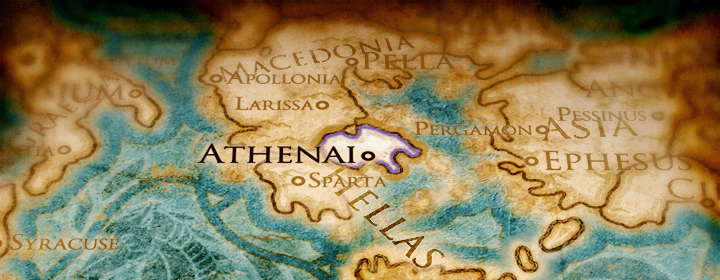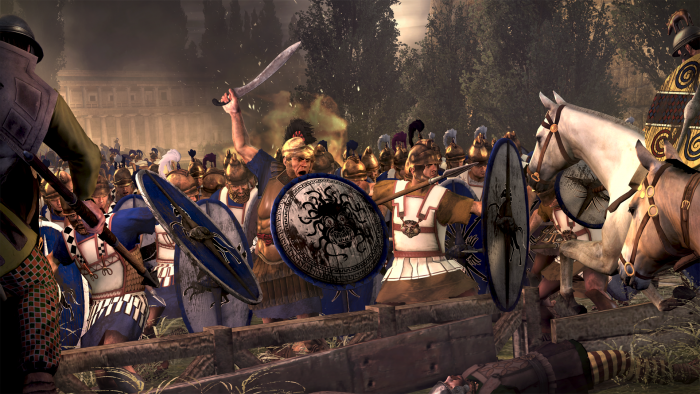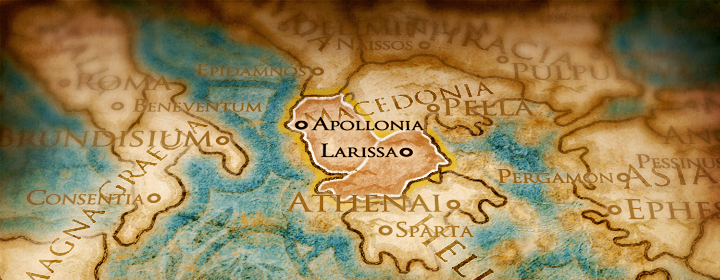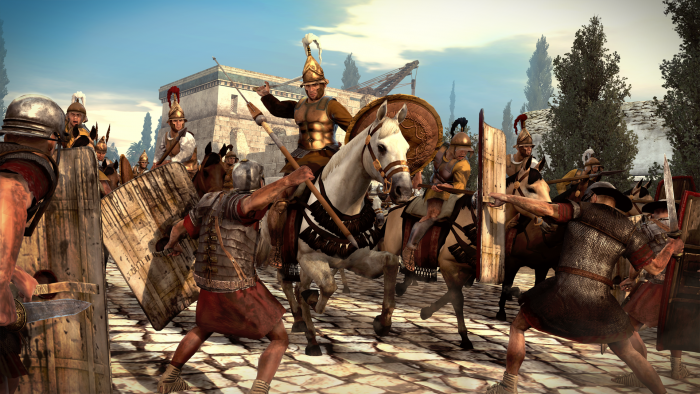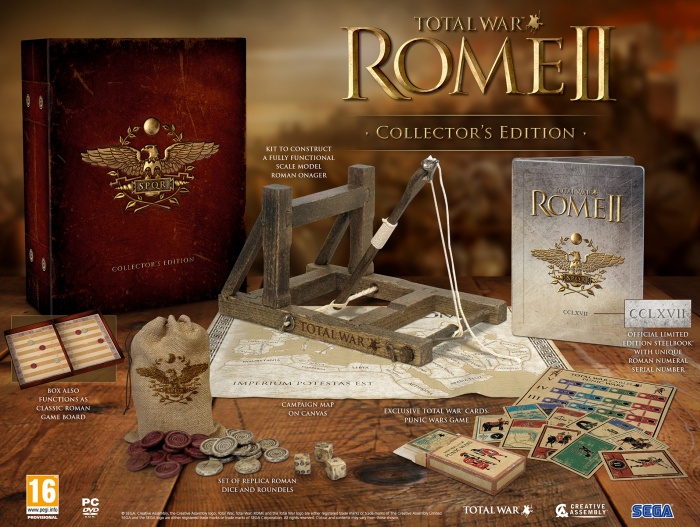
The Total War™: ROME II Collector’s Edition will be produced in a single, extremely limited run; only 22,000 individually numbered copies will be manufactured.
The CE contains a wealth of bespoke, Roman-themed games and items, bound in a leather-effect presentation box, complete with gold logo and magnetic closure; including:
- Numbered copy of Total War™: ROME II
- The most ambitious and expansive game in the Total War™ series to date, ROME II brings the statecraft, politics, intrigue, diplomacy and epic battles of the ancient world to life in thrilling detail. This version comes in a debossed Steelbook™ case, laser-etched with your unique collector’s number in Roman numerals.
- Tabula set
- The Roman forerunner to Backgammon, this Tabula set comprises 30 bone-effect game-pieces supplied in their own burlap drawstring bag, while the board is built into the base of the Collector’s Edition box.
- Tesserae Dice
- Three replica bone-effect dice for use in a variety of games. The design is based on original Roman Tesserae, found at the archaeological site of Herculaneum.
- Total War Cards™: PUNIC WARS
- Designed from the ground up to echo elements from ROME II, Total War Cards is a game of skill and luck for two players. Involving combat, territorial control, resource management and technological development, PUNIC WARS consists of 58 high-quality playing cards and a game-board printed with the PUNIC WARS tech-tree.
- Canvas Campaign Map
- A reminder of the worlds you must conquer, this ribbon-tied canvas map depicts each of the 57 provinces of the ROME II campaign.
- Roman Onager
- A complete, fully-functional Onager, or Roman siege catapult. This easy-to-assemble kit is constructed from weathered wood and steel, measures 26cm x 12cm x 12cm, and is capable of unleashing mall projectiles at a variety of inanimate objects which may have affronted the glory of your empire.
We will endevor to keep this page up to date with availbility listed, but please bear in mind we will only be doing a single run of these and once they are sold out we will not be making anymore.
For more explanations see the video below, which explained better than just words
